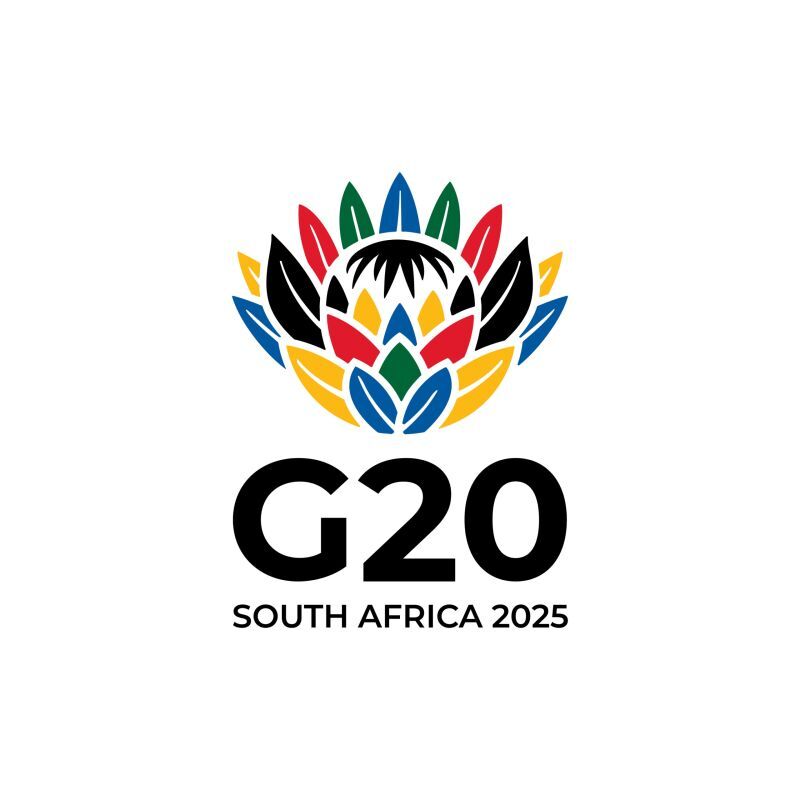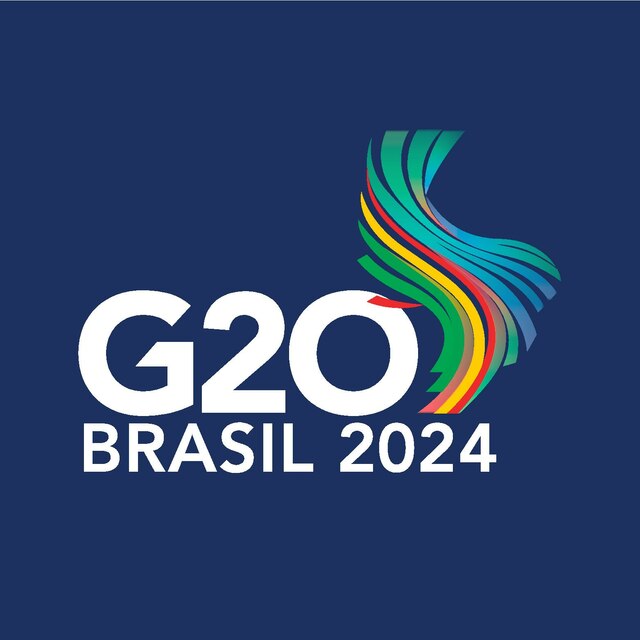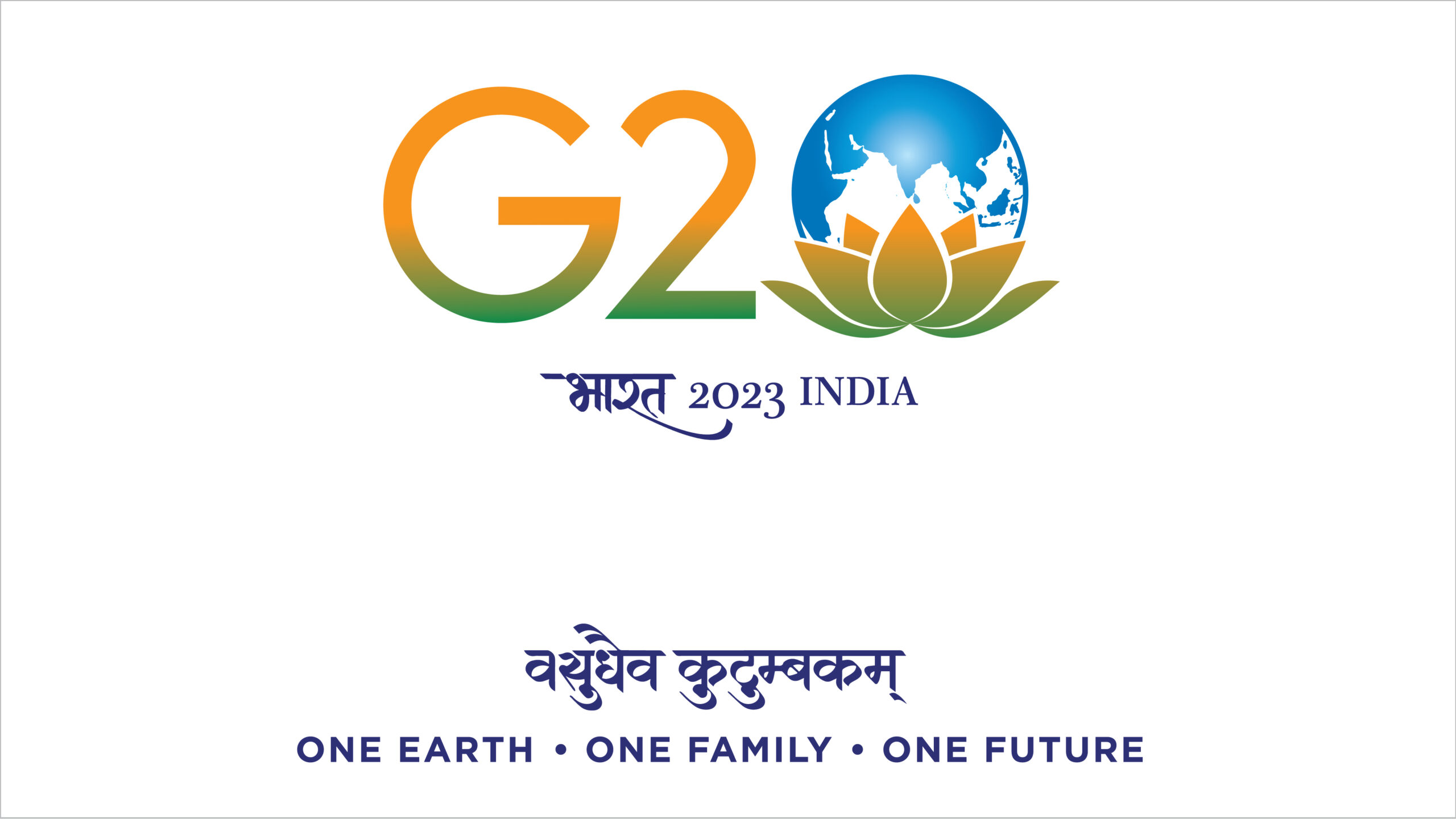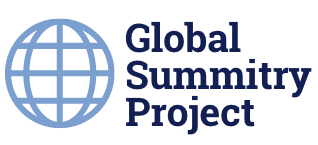About the G20
The G20 Universe
The G20 is a prominent, if not the most prominent, informal leaders-led global summit. It consists of member states that represent 85 percent of the global GDP, over 75 percent of global trade, and about two-thirds of the global population. The members of the G20 are Argentina, Australia, Canada, China, China, France, Germany, India, Indonesia, Italy, Japan, Republic of Korea, Mexico, Russia, Saudi Arabia, South Africa, Türkiye, United Kingdom, the United States, the European Union, and as of January 1, 2024, the African Union (AU).
Other states and international organisations are frequently invited as guests to participate in G20 meetings and the Leaders’ Summit. Invitees vary for each G20 Presidency, as the host takes the lead in providing invitations however, there are some permanent guest invitees. Included in this group are Spain, the Chair of the Association of Southeast Asian Nations (ASEAN), the Chair of New Partnership for Africa’s Development (NEPAD), the United Nations (UN), International Monetary Fund (IMF), World Bank, Financial Stability Borad (FSB), World Trade Organization (WTO), Organisation for Economic Co-operation and Development (OECD), World Health Organisations (WHO) and the International Labour Organisation (ILO).
The G20 began as an Informal forum in 1999 after the Asian financial crisis of 1997-98. The forum consisted of Finance Ministers and Central Bank Governors of significant advanced and developing economies. These member states met to discuss macroeconomic issues such as international economic and financial stability. After the 2008 great financial crisis (GFC), the G20 was elevated to a forum for Heads of State/Government, as crisis coordination would only be possible at the highest political level. Since then, the G20 Leaders’ Summit has focused on broader problems of the global economy and has tried to promote international economic cooperation. The G20 Summit has expanded its agenda to include issues such as: trade, sustainable development, climate change, health, agriculture, food security, energy, the environment, and anti-corruption. Today, the G20 plays a key role in shaping the economic architecture and evolving policy progress across numerous global governance issues.
Much of the G20’s work is carried out in Ministerial-level meetings, Task Forces and Working Groups. The on-going policymaking is carried on in two streams: the Sherpa Track and the Finance Track that is further described below. The G20 also reaches beyond the two track workstreams to include engagement with civil society, through so-called engagement groups.
G20 Leaders only meet once during any hosting year. Before the Summit, regular Ministerial-level meetings take place throughout the year. During these meetings, ministers and high-level representatives of member states come together to deliberate on policy matters and explore how to achieve policy advances and to to collaborate over international global governance arrangements. Notable meetings include of the Finance Ministers and Central Bank Governors generally gathering four times over a hosting year. As the G20’s scope of work has evolved, new Ministerial-level meetings have been organized to deepen cooperation and move collective action forward. Meetings have taken place between ministers overseeing the following policy areas:
- Agriculture
- Anticorruption
- Culture and intellectual property
- Development and International Cooperation
- Digitalization
- Education
- Energy
- Environment
- Foreign policy
- Health
- Labour and Employment
- Research
- Tourism
- Trade
Task Forces are specialised working groups that have been established under G20 presidencies to further enhance dialogue and cooperation between ministries on particularly pressing issues. For example, the Joint Finance and Health Task Force was established during the G20 Rome Summit in 2021 to convene Finance and Health Ministers to address issues related to pandemic prevention, preparedness and response. Other Task Forces that have been established include:
- The G20 Taskforce on Employment (later elevated into a Working Group under the Sherpa Track)
- The G20/OECD Task Force on Financial Consumer Protection
- G20/OECD Task Force on Innovation
- Task Force on Climate-related Financial Disclosures (TCFD)
G20 Work Streams
As noted earlier, the G20 is divided between two workstreams – the Sherpa Track and the Finance Track.
The Sherpa Track consists of Working Groups (WG) of experts and officials from relevant ministries. These WGs participate in analysis and discussions of internationally relevant thematic issues. The WGs are coordinated by Sherpas – the personal representatives of the leaders of the G20 member states. The Sherpas oversee the negotiations and discussions of agenda items for the Summit, and also substantive work of the G20. A primary aspect of the Sherpa track is to ‘hammer’ out the annual Leaders’ Declaration.
The WGs in the Sherpa Track, as of the G20 India include:
- The Agriculture Deputies Group (established in 2011): The WG initially focused on addressing the volatility of food prices but now facilitates cooperation and information exchange on agricultural-related issues relevant to achieving the UN 2030 Agenda. Focus areas: food security, nutrition, antimicrobial resistance, food waste and loss, sustainability, and resilient and inclusive food value chains.
- The Anti-Corruption WG (ACWG) (established in 2010): Reports to the G20 Leaders on anti-corruption issues and works to establish common standards among G20 members to combat corruption. Focus areas: private sector integrity and transparency, bribery, international cooperation, asset recovery, beneficial ownership transparency, vulnerable sectors and capacity-building.
- The Culture WG (established in 2021): Recognising culture’s cross-cutting contribution to advancing the G20 agenda, the WG aims to strengthen collaboration to support cultural and creative industries. Focus areas: the impact of culture, cultural heritage, and the creative economy on economic, social, and environmental dimensions of development.
- The Digital Economy WG (established in 2021): Offers guidance to policy makers on harnessing the digital potential of economies. Focus areas: digital transformation to enhance public participation and realise inclusive social and economic growth.
- The Disaster Risk Reduction WG(established in 2023): Aims to integrate disaster risk reduction across the work of the G20. Focus areas: universal coverage or early warning systems, disaster and climate resilient infrastructure, financing frameworks for disaster risk reduction, disaster recovery, rehabilitation and reconstruction, nature-based solutions, and ecosystem-based approaches for disaster risk reduction.
- The Development Working Group (DWG) (established in 2010): the DWG Drives the G20’s development agenda and aims to address issues directly affecting developing countries, especially Low-Income Countries (LICs). Focus areas: infrastructure, infrastructure investment/finance, human resource development, trade, private investment and job creation, food security, resilient growth, financial inclusion; domestic resource mobilisation and knowledge sharing.
- The Education WG (EdWG) (established in 2018): Strengthens learning outcomes and equitable access to education, and addresses skills development and school-to-work transitions. Focus areas: technological tools, digitalization, universal quality education, financing, and partnerships for education and international cooperation.
- The Employment WG (EWG) (established in 2014): Addresses priority labour, employment, and social issues to further develop strong, sustainable, balanced, inclusive and job-rich growth. Focus areas: boosting labour demand through addressing youth and long-term unemployment, boosting labour supply through skills education and increased workforce participation, promoting inclusive labour markets, workplace health and safety, and improving measures related to labour mobility, skills portability.
- The Climate Sustainability WG (CSWG) (established in 2018): Focuses on environmental issues and climate change mitigation and adaptation. Focus areas: resource efficiency, circular economy, ocean health, marine litter, coral reefs, land degradation, biodiversity loss, water resource management.
- The Energy Transition WG (established in 2018): Energy-related issues have been a G20 concern since 2009 and have been discussed in relation to climate sustainability in 2017 but has since been a standalone discussion around energy transitions since 2018. Focus areas: energy security, accessibility and affordability, energy efficiency, renewable energy, innovation, technology and financing.
- The Health WG (established in 2017): Enhances dialogue and informs G20 Leaders on important global health issues to create sustainable and equitable health for present and future generations. Focus areas: preparedness of health systems for health emergencies, One Health approach, digital health, universal health coverage, compliance with international health regulations, and sustainable financing.
- The Trade and Investment WG (TIWG) (established in 2016): Discusses trade policies and agreements among members and strategies to foster global investment. Focus areas: strengthening the G20 trade and investment mechanism, promoting global trade growth, supporting the multilateral trading system, promoting global investment policy cooperation and coordination, and promoting inclusive and coordinated global value chains.
- The Tourism WG o (established in 2020): Deliberates and offers guidance on the development of local and global tourism while mitigating common challenges the tourism industry faces, such as the COVID-19 pandemic. Focus areas: the tourism sector’s role in achieving the UN’s Agenda 2030, and sustainable and resilient tourism.
The Finance Track is led by the Finance Ministers and Central Bank Governors of the member states. The topics that make up the core of the agenda of the Finance Track are the global economy, fiscal and monetary policies, international financial institutions, financial sector reform and regulation, and international taxation. Over the years, new themes have been added as priorities, including infrastructure investment, exchange flexibility, climate change, financial inclusions, and global financial safety nets. Like the Sherpa Track, the Finance Track consists of various WGs.
The Finance WGs here are:
- The Framework WG (FWG): considered as the flagship WG of the G20. It is tasked with discussing macroeconomic issues and possible areas of policy coordination to promote Strong, Sustainable, Balanced, and Inclusive Growth (SSBIG) across the G20. Focus areas: global risks and uncertainties, addressing global imbalances, enhancing resources of international financial institutions (IFIs).
- The International Financial Architecture WG (IFA WG): Aims to strengthen the IFA through detecting and addressing vulnerabilities in the international system. It ensures the IMF is capable of providing financial support to all its members during crises, monitors the IMF, and supports the implementation of its reforms. Focus areas: enhancing crisis prevention and management tools, the adequacy of financial safety nets, reforming the international monetary system, development finance, managing debt vulnerabilities and transparency, managing capital flows, and promoting local currency bond markets.
- Global Partnership for Financial Inclusion (GPFI): Serves as a platform for both G20 and non-G20 states to enforce the Financial Inclusion Action Plan of the G20 and mobilises funding for financial inclusion. Focus areas: regulation and standard-setting bodies, SME finance, financial inclusion data and measurement, financial stability, consumer protection, facilitating remittance transfers, financial literacy, and bridging the digital divide.
- Infrastructure and Investment WG (IIWG): Addresses how long-term financing for investment can support SSBIG. It provides advice on policies to improve preparation, financing, and management of quality infrastructure investments to promote the provision of inclusive, sustainable, and resilient basic infrastructure services to all. Focus areas: mobilising big infrastructure investments, infratech.
- Green Finance Study Group (GFSG)/Sustainable Finance WG (SFWG): Mobilises sustainable finance to help ensure global growth and stability and promote the transition to greener, more resilient, and inclusive societies and economies. It identifies market and institutional barriers to green finance and develops options to overcome the barriers to promoting capital for green investment. The recent proliferation of sustainable finance initiatives has created a fragmented landscape which hinders scaling up and sustaining financing for the global climate agenda. The working group operates as a forum to align financing and policies more closely to the goals of the Paris Agreement and Agenda 2030. The SFWG orientates its work around the G20 Sustainable Finance Roadmap (‘the Roadmap’), a multiyear document that sets out the priorities of the sustainable finance agenda, and the actions for the G20 to take to promote the achievement of those priorities over the coming years. Each year, beginning with 2022, the SFWG publishes a report on the progress made in line with the Roadmap. Although the initial focus of the group is on climate, it is open to addressing other sustainability risks, such as nature, biodiversity, water, and social-related ones. Focus areas: developing green banking; scaling up the green bond market; greening institutional investment; risk analysis, and measuring progress of green financial activities.
- Additional topics discussed under the Finance Track: These issues do not have formal working groups dedicated to them but are discussed at the level of the G20 Finance and Central Bank Deputies.
- International taxation agenda: Issues discussed here include digitalization of the economy, fighting against tax evasion, ending bank secrecy and tax havens, exchange of information, and addressing tax avoidance by multinational corporations.
- Financial sector issues: Focus areas include strengthening global financial system resilience, prudential oversight, improving risk management, establishing supervisory colleges, enhancing cross-border payments, addressing structural vulnerabilities in non-bank financial intermediation (NBFI,climate-related financial risk, assessment of risks from crypto-assets and policy approaches among others.
Ministerial meetings and WGs may vary each year with some Ministerial meetings or WGs being added or removed depending on the particular Presidency’s priorities.
Alongside the two tracks are Engagement Groups, which consist of non-government participants from G20 members ranging from civil society groups, parliamentarians, think tanks, women, the youth, labour, businesses, and researchers. Engagement Groups are the primary way through which the G20 process extends and engages civil society. These Engagement Groups provide recommendations to the G20 leaders and contribute to the policy-making process. The official Engagements Groups for the G20 are:
- Business20 (B20) (established in 2010): The official dialogue forum for the global business community. The forum consists of companies and business organisations and aims to gain the business sector’s views on issues of global economic and trade governance.
- Civil20 (C20) (established in 2010): Provides a platform for Civil Society Organisations (CSOs) and non-business voices to express their interests and contribute to the G20 process in a structured manner.
- Labour20 (L20) (established in 2011): Brings together trade union leaders from G20 countries and provides policy analyses and recommendations to address labour-related issues.
- Parliament20 (P20) (established in 2010): Based on the recognition that parliamentarians play an important role in guiding governments, the forum brings parliamentary dimensions to global governance, and raises awareness and builds political support for international commitments. This ensures that the international commitments are translated into national realities. The forum is led by Speakers from parliaments of G20 states.
- Science20 (S20) (established in 2017): Provides consensus-based and science-driven recommendations to policymakers. It is comprised of national science academies of G20 states and international experts.
- Supreme Audit Institutions (SAI20) (established in 2022): Discusses the role played by SAIs to ensure transparency, accountability, and promote cooperation among the G20 members.
- Startup20 (established 2023): Aims to create a global narrative of supporting startups by enabling synergies between startups, corporates, investors, innovation agencies, and other key innovation ecosystem stakeholders. By providing a common platform for startups from G20 member states, Startup20 provides guidance for capacity-building, identifying funding gaps, enhancing employment opportunities, growing an inclusive innovation ecosystem, and using start-ups to achieve the sustainable development goals (SDGs) targets and climate resilience.
- Think20 (T20) (established in 2013): Serves as an ‘idea bank’ for the G20. It produces policy briefs for G20 working groups, ministerial meetings, and the Summit. The T20 is comprised of think tanks and high-level experts from the G20 members that work in Task Forces on topics determined by the G20. The Task Forces for the T20 in the 2023 G20 cycle are:
- Macroeconomics, Trade, and Livelihoods: Policy Coherence and International Coordination
- Our Common Digital Future: Affordable, Accessible and Inclusive Digital Public Infrastructure
- LiFE, Resilience, and Values for Wellbeing
- Refuelling Growth: Clean Energy and Green Transitions
- Purpose & Performance: Reassessing the Global Financial Order
- Accelerating SDGs: Exploring New Pathways to the 2030 Agenda
- Urban20 (U20) (established in 2017): Aims to establish engagement and diplomacy among cities, and emphases their role in realising the sustainable development agenda. The forum contributes perspectives, concerns, and ideas from cities to inform G20 negotiations. Focus areas: encouraging environmentally responsible behaviours, ensuring water security, accelerating climate finance, championing ‘local’ identity, reinventing frameworks for urban governance and planning, and catalysing digital urban futures.
- Women20 (W20) (established in 2015): Its primary purpose is to implement the “25×25” commitment adopted at the Brisbane Summit in 2014. This commitment aims at reducing the gender gap in labour force participation by 25percent by the year 2025. The W20 focuses on gender inclusive economic growth. Focus areas: grassroots leadership, entrepreneurship, bridging the gender digital divide, education and skills development, and climate change.
- Youth20 (Y20) (established in 2010): Provides a platform for young people to express their vision and ideas on the priorities of the G20. Generates recommendations to submit to G20 Leaders.
Each year, the work of the G20 group culminates in a Leaders’ Summit where it is hoped the G20 can adopt the Leaders’ Declaration by consensus. The Declaration presumes to set out the G20’s collective commitments and the priorities that were discussed and agreed upon in Ministerial and Working Group Meetings.
The Cycle Ends and Begins Again
The G20 has an annual rotating presidency – the Host. The Host steers the G20 for that year and hosts the Summit. The Host also organises the preparatory meetings that builds to the consensus at the final Summit. There is no permanent secretariat for the Host. Instead, the Host is supported by the officials of the previous, current, and incoming Presidencies, known as the “Troika”. This ensures continuity in the work of the G20. In 2023, India holds the G20 Presidency. India is being supported by Indonesia and Brazil. Brazil will host in 2024 and South Africa will host in 2025. With South Africa’s year accomplished a full cycle of G20 members will be completed. Presumably, the United States will take the G20 hosting in 2026.
G20 Summits:
- 2008: United States, Washington Summit
- 2009: United Kingdom, London Summit
- 2009: United States, Pittsburgh Summit
- 2010: Canada, Toronto Summit
- 2010: South Korea, Seoul Summit
- 2011: France, Cannes Summit
- 2012: Mexico, Los Cabos Summit
- 2013: Russia, St Petersburg Summit
- 2014: Australia, Brisbane Summit
- 2015: Turkey, Antalya Summit
- 2016: China, Hangzhou Summit
- 2017: Germany, Hamburg Summit
- 2018: Argentina, Buenos Aires Summit
- 2019: Japan, Osaka Summit
- 2020: Saudi Arabia, Riyadh Summit
- 2021: Italy, Rome Summit
- 2022: Indonesia, Bali Summit
- 2023: India, New Delhi Summit
- 2024: Brazil, Rio de Janeiro Summit
- 2025: South Africa
- 2026: United States
- G20
- Archive

G20 South Africa 2025
2025 will see the first G20 Summit in Africa, following Brazil’s handover of the Presidency to South Africa in November 2024. Under South Africa’s Presidency, the G20 will conduct its work in accordance with the banner, ‘Solidarity, Equality, Sustainability’.

G20 Brazil 2024
On December 1, 2023, Brazil took over from India in the rotating Presidency of the G20. Brazil’s Presidency will see the G20 leaders convening in Rio de Janeiro in November 2024 to discuss pressing global issues and cooperation to strengthen global governance. The Summit will convene under the slogan of Building a Just World and a Sustainable Planet.

Brazilian President Lula’s commitment to climate change is a stark contrast to his predecessor Jair Bolsonaro’s approach
razilians have signalled that climate change is a priority and they’ve turned to a familiar face to lead the battle.
Luiz Inácio Lula da Silva, who returned for a third term as president after more than a decade, promises to repair the damage done to the Amazon rainforest under former President Jair Messias Bolsonaro’s watch.

Summit Dialogue Season 2, Ep 3: An Interview with Feliciano de Sá Guimarães on the Hopes for the Brazil G20
It is with great pleasure that I have invited Feliciano de Sá Guimarães into the Virtual Studio for this episode of ‘Summit Dialogue’. Feliciano is currently the Academic Director and Senior Researcher at CEBRI. I hope, with Feliciano’s help, to explore Brazil’s hosting of the G20. What designs and hopes does Luiz Inácio Lula da Silva, or Lula as he is known, the returned President of Brazil have for Brazil’s G20 Presidency.

G20 Brazil 2024 Pre-Summit Discussion
On December 1, 2023, Brazil took over from India in the rotating Presidency of the G20. Brazil’s Presidency will see the G20 leaders convening in Rio de Janeiro in November 2024 to discuss pressing global issues and cooperation to strengthen global governance. The Summit will convene under the slogan of Building a Just World and a Sustainable Planet.
Building on India’s work, Brazil aims to bring the issues of developing countries to the front of the global agenda, as stated by Brazilian Envoy to India, Andre Aranha Correa do Lago.

The G20 India Year 2023
The G20 India Summit held on September 9-10th saw leaders gathering in New Delhi to discuss international economic cooperation and the strengthening the architecture of global governance. India’s G20 Presidency aimed to build on the achievements of the previous 17 Leaders’ Summits. There was also a desire from the India host to promote a universal sense of one-ness. This was captured in this year’s India theme, ‘One Earth, One Family, One Future’, which speaks to the interdependence of all life on Earth and across the universe. The India theme highlighted the importance of environmentally sustainable and responsible choices in individual lifestyles and also national development, which contributes to a cleaner, greener,
